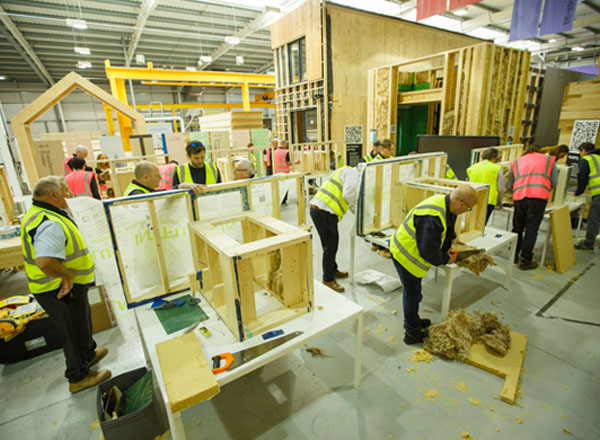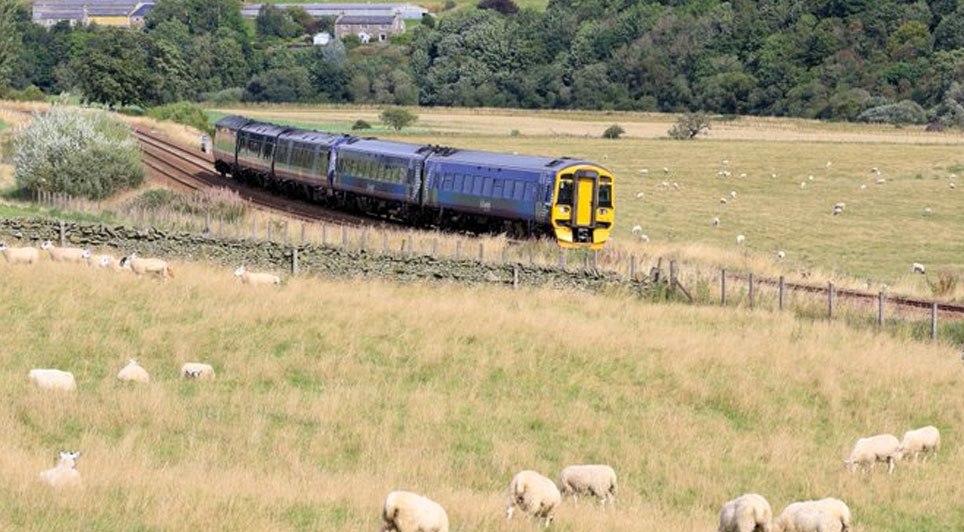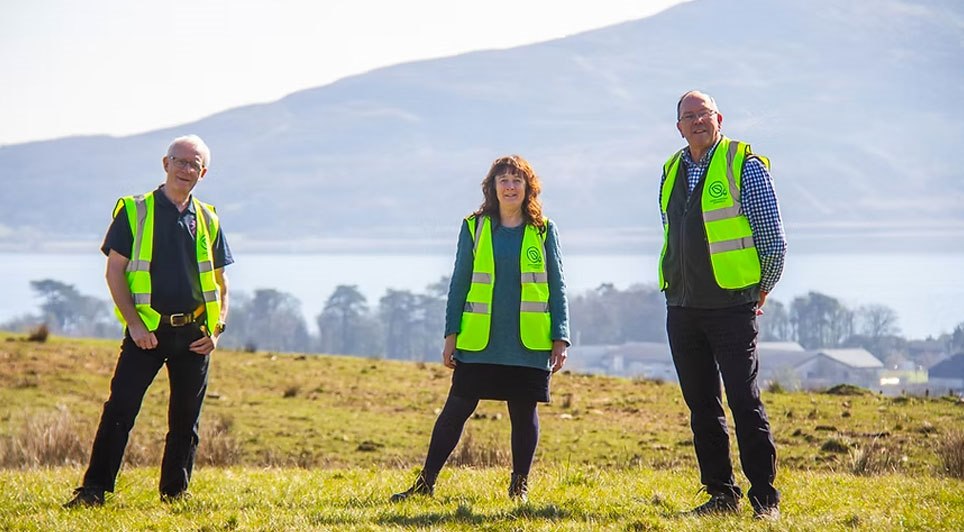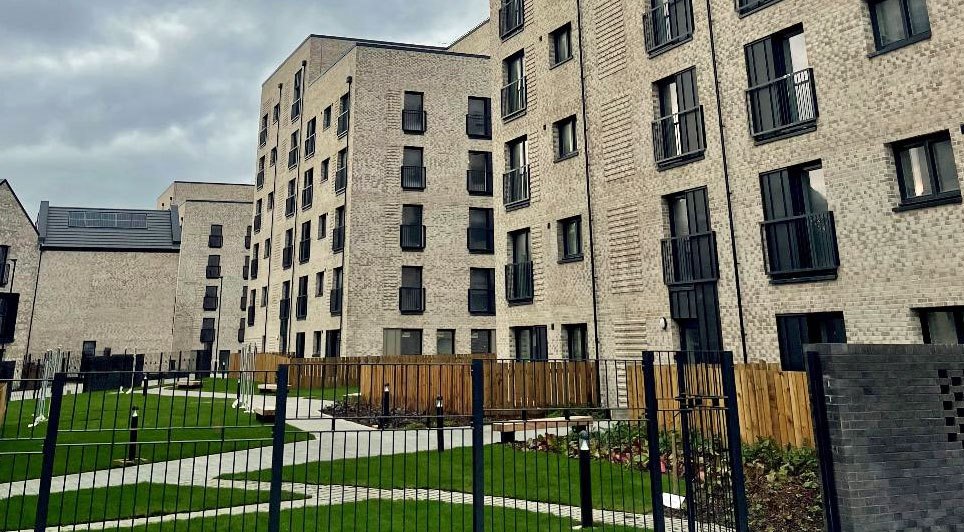The Passivhaus Trust has outlined its key recommendations for how the Scottish equivalent to the Passivhaus standard could be delivered.
The recommendations come ahead of a summer consultation on the Scottish Government's proposal to introduce design standards for all newbuild housing to meet a Scottish equivalent to the Passivhaus standard. New legislation is expected to be adopted in December.
The Passivhaus Trust recommends that the Scottish Equivalent to Passivhaus should be:
• Introduced into Scotland with a transition period to allow for training and industry preparations.
• Based on the full Passivhaus standard, adapted into a Scottish-owned version that will include localised weather data.
• Designed and built by the existing, local supply chain, with training and support for key sectors (such as ventilation systems) where needed.
• Verified/certified through Local Authority Verifiers and Section 6 Assessors, who will receive appropriate training to add this to their skills.
• Supported with funding for social housing providers, through a modification of additional supported measures within affordable housing investment benchmarks.
Certified Passivhaus buildings should be accepted as 'Deemed to Satisfy' the new regulations from January 2025, to create a positive incentive for the industry to start the transition immediately.
Central to its recommendations is the need for a transition period for the construction industry to prepare for the policy. This is to allow for upskilling and training during a realistic timeframe once the industry has clarity on the exact policy requirements. The Passivhaus Trust is clear that the Scottish Passivhaus equivalent policy should be based on the full Passivhaus standard and its metrics, so that Scotland can benefit from the tried and tested international methodology. As a positive incentive to encourage speedy adoption, the Trust is also suggesting that buildings built to the Passivhaus standard are considered 'deemed to satisfy' Scottish building regulations from January 2025.
Training in Passivhaus design and construction is readily available in Scotland, but the Trust has also identified a specific additional training need for ventilation system engineers, and training for those involved in certification. To maintain the rigorous quality assurance standards of Passivhaus and embed them into a Scottish context, the Passivhaus Trust is proposing that Local Authority Verifiers and Section 6 Assessors are trained to undertake the quality assurance for the Passivhaus equivalent standard.
To support the transition, the Passivhaus Trust proposes that social housing providers receive additional funding, through a modification of additional supported measures within affordable housing investment benchmarks. In addition, the Trust will encourage and support knowledge-sharing of cost-effective approaches, to help speed up the learning curve process.
Sarah Lewis Research & Policy Director at the Passivhaus Trust commented: "Scotland is leading the way in developing building standards that will radically cut heating bills, improve indoor air quality and comfort, and deliver quality homes that perform as designed. The Passivhaus Trust is here to support the Scottish Government and construction industry's move towards a Scottish Passivhaus equivalent standard. We have identified numerous ways that we can help the Scottish construction industry through that transition.
"We have been impressed with the can-do attitude of the construction industry involved in delivering Passivhaus schools in Scotland. However, we need time to ensure that the Scottish construction industry is fully prepared and ready to deliver Passivhaus equivalent homes at scale, so have identified that a transition period is essential."
Caitriona Jordan, Head of Retrofit Programmes at Built Environment - Smarter Transformation (BE-ST) said: "Since March 2021, BE-ST has upskilled over 3000 people in Passivhaus standards and the fabric first approach. It is really useful to identify the key training needs for the uptake of a Scottish Passivhaus equivalent policy. It is possible to close the skills gap, train the workforce in Passivhaus, and meet the needs for implementation of the new building regulations at scale. BE-ST is ready to help make that happen."
Passivhaus is the leading international low energy building standard. Modelling undertaken for the Passivhaus Trust has shown that the Passivhaus standard reduces heating demand in homes by 79% compared with current Scottish building regulations (Section 6 2023).
Construction News
21/03/2024
Passivhaus Trust Outlines Scottish Standard Equivalent Recommendations


15/04/2025
Construction of a £70 million student accommodation development at 292-298 St Vincent Street in Glasgow has reached a significant milestone, with the building now visibly rising from the ground.
Drone footage has captured the progress of the project, which is a partnership between developer Artisa

15/04/2025
Energy regulator Ofgem is expected to confirm today (April 15) its finalised Connections Reform process, designed to expedite grid connections for renewable energy projects that are ready and crucial for achieving the UK's clean power targets for 2030 and beyond.
The new connections system, anticip

15/04/2025
The ambitious transformation of Glasgow’s landmark George Square has moved into a tangible phase with the commencement of the erection of hoardings around the perimeter of the civic space. Starting today, the hoardings will enclose the Square for the duration of its 18-month redevelopment.
The pane

15/04/2025
Members of the public are invited to attend a consultation feedback event to discuss the proposed infrastructure associated with a new underground electricity transmission cable between the Kinardochy and Errochty substations in Perthshire.
The event will take place on Monday, 28 April, from 4 pm t

15/04/2025
Turner & Townsend have been appointed as project managers to develop a business case for the potential extension of the Borders Railway beyond its current terminus at Tweedbank to Hawick and Carlisle.
This key appointment will enable crucial work to progress on the project, including feasibility s

15/04/2025
Arran Community Renewables, a Community Benefit Society based on the Isle of Arran, has secured planning consent for a 6 MW solar farm. The Glenkiln Solar Farm, located approximately 1km west of Lamlash, is projected to generate 5,600MWh of clean renewable energy annually from 2027.
The £5 million

15/04/2025
A new Route Map has been published by the Scottish Land Commission (SLC) to ensure communities across Scotland secure tangible and long-lasting benefits from nature restoration projects and investment in the country's natural environment.
The practical guide is designed for landowners, developers,

15/04/2025
Award-winning principal contractor Procast Group has further expanded its presence across Scotland with the opening of a new base in Dumfries. The Hamilton-based firm has invested £30,000 in a new warehouse and office facility in the Maxwelltown Industrial Estate in Dumfries and Galloway, marking it

14/04/2025
Glasgow City Council's Affordable Housing Supply Programme (AHSP) facilitated the completion of over 1,000 new affordable homes in the city during the past year, despite facing budgetary reductions at the start of the financial year.
The initial grant of £78.687 million from the Scottish Government

14/04/2025
A key phase of Scottish Water's £11.5 million project to upgrade a strategic rising sewer main connecting Renfrew and Glasgow is set to begin, resulting in a significant road closure.
From Monday, 28 April 2025, Ferry Road in Renfrew will be closed to all vehicular traffic for a period of four mont
 Scotland
Scotland UK
UK Ireland
Ireland London
London










